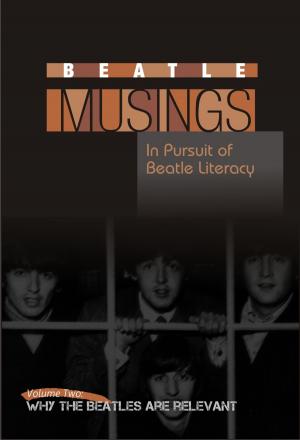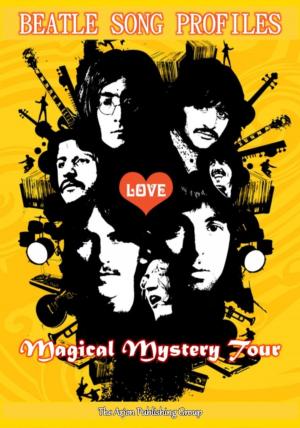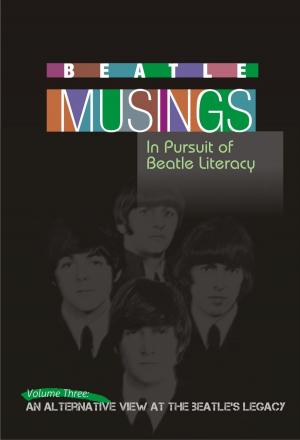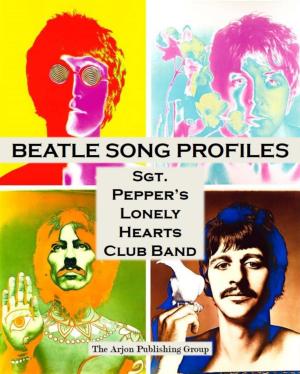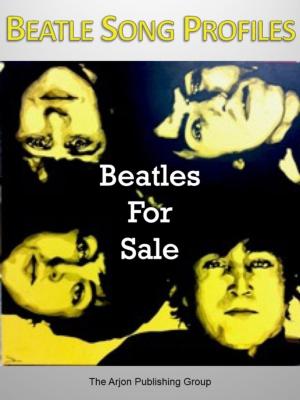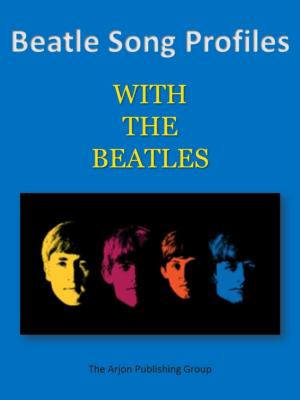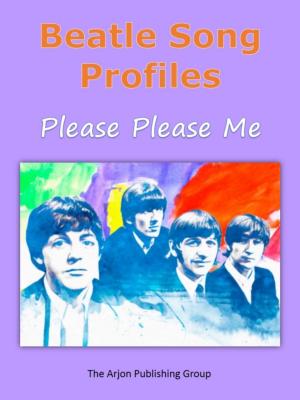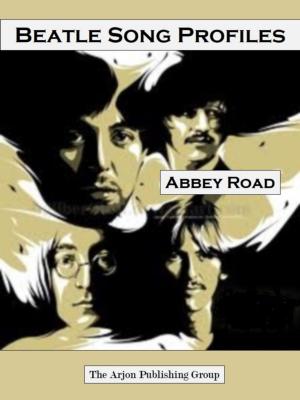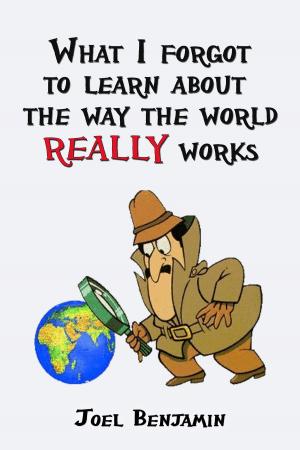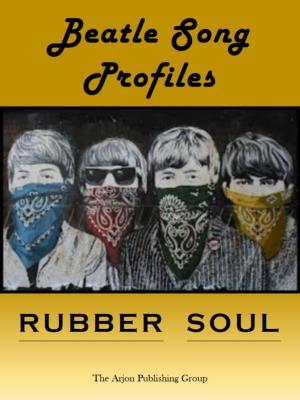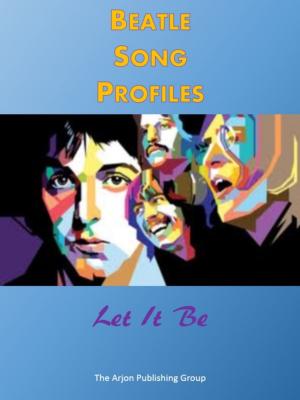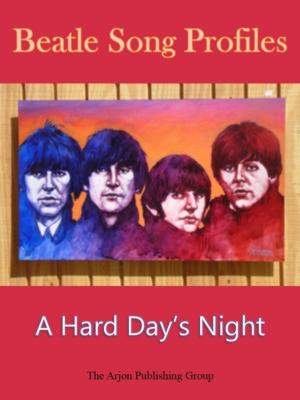Beatle Song Profiles: White Album
Nonfiction, Entertainment, Music, Pop & Rock, Popular, Music Styles, Rock| Author: | Joel Benjamin | ISBN: | 9789657570227 |
| Publisher: | Arjon Publishing | Publication: | August 7, 2012 |
| Imprint: | Language: | English |
| Author: | Joel Benjamin |
| ISBN: | 9789657570227 |
| Publisher: | Arjon Publishing |
| Publication: | August 7, 2012 |
| Imprint: | |
| Language: | English |
Each of the 28 songs from White Album are “profiled” in this volume of Beatle Song Profiles.
Beatle Song Profiles are concise commentaries on every Beatle song. The song profiles describe the song’s origins and inspiration, what The Beatles themselves said about it, what was unique about the music and/or production of the arrangement or vocals, and the deeper meaning of the lyrics.
Beatle Song Profiles is a unique educational tool to enable readers to learn about every song on all 12 albums The Beatles recorded.
Sample song profile from the White Album
Back in the USSR
“Back in the USSR” was based on Chuck Berry’s “Back in the USA.” However in Berry’s song he sings about how happy he is when he returns to the US. McCartney reversed it and makes the singer happy he’s back in the USSR.
The song’s origins are from a meeting between Mike Love from the Beach Boys and McCartney during their 1968 India retreat. Love suggested that The Beatles incorporate a little bit of a Beach Boy sound in a song as they did in “California Girls.” He did and changed “California Girls” to “Moscow Girls” and added the definitive Beach Boy “Oooeeeeoooo” in the background harmonies.
McCartney hated the “American Dream” sugary lyrics the Beach Boys used so he came up with the lyric “leaving the West behind.” The line “Georgia’s always on my mind” in a play on the Ray Charles song “Georgia On My Mind.” It has a double meaning, since Georgia was part of the U.S.S.R. then. This song was banned from many radio stations upon the release of the White Album as many people thought it promoted communism.
In his autobiography, McCartney commented on the track:
“In my mind it’s just about a (Russian) spy who’s been in America for a long time and he’s become very American but when he gets back to the USSR he’s saying, ‘Leave it ‘til tomorrow to unpack my case, Honey, disconnect the phone.’ and all that, but to Russian women. ‘It is someone who hasn’t got a lot but they all still every bit as proud as an American would be. It’s tongue-in-cheek. He can’t wait to get back to the Georgian mountains because Georgia’s always on my mind’ there is all sorts of little jokes in it.”
Loaded up with a barrel of fresh energy, “Back in the USSR” is considered The Beatles’ last great up-tempo rockers they would record. It demonstrates the best type of parody: one that sublimely lampoons its target while working as that type of song in its own right.
David Quantick writes:
“It could have been a rotten comedy song, a weak parody tune, but McCartney- cocky, confident, and able to do almost anything musically, made it into something amazing. His sense of humor- a quality that is always underrated in pop and rock, in which suicidal determination and hard-faced romanticism are more popular than the ability to find things ridiculous- kicked in at this point to make the song’s gripping twist.”
After McCartney criticized Ringo’s drumming on the session, Ringo walked out of the studio. While Paul then played the drums on the track he lacked Ringo’s “mannerism” and “feel and soul.” Both Lennon and Harrison have a crack at playing bass.
Each of the 28 songs from White Album are “profiled” in this volume of Beatle Song Profiles.
Beatle Song Profiles are concise commentaries on every Beatle song. The song profiles describe the song’s origins and inspiration, what The Beatles themselves said about it, what was unique about the music and/or production of the arrangement or vocals, and the deeper meaning of the lyrics.
Beatle Song Profiles is a unique educational tool to enable readers to learn about every song on all 12 albums The Beatles recorded.
Sample song profile from the White Album
Back in the USSR
“Back in the USSR” was based on Chuck Berry’s “Back in the USA.” However in Berry’s song he sings about how happy he is when he returns to the US. McCartney reversed it and makes the singer happy he’s back in the USSR.
The song’s origins are from a meeting between Mike Love from the Beach Boys and McCartney during their 1968 India retreat. Love suggested that The Beatles incorporate a little bit of a Beach Boy sound in a song as they did in “California Girls.” He did and changed “California Girls” to “Moscow Girls” and added the definitive Beach Boy “Oooeeeeoooo” in the background harmonies.
McCartney hated the “American Dream” sugary lyrics the Beach Boys used so he came up with the lyric “leaving the West behind.” The line “Georgia’s always on my mind” in a play on the Ray Charles song “Georgia On My Mind.” It has a double meaning, since Georgia was part of the U.S.S.R. then. This song was banned from many radio stations upon the release of the White Album as many people thought it promoted communism.
In his autobiography, McCartney commented on the track:
“In my mind it’s just about a (Russian) spy who’s been in America for a long time and he’s become very American but when he gets back to the USSR he’s saying, ‘Leave it ‘til tomorrow to unpack my case, Honey, disconnect the phone.’ and all that, but to Russian women. ‘It is someone who hasn’t got a lot but they all still every bit as proud as an American would be. It’s tongue-in-cheek. He can’t wait to get back to the Georgian mountains because Georgia’s always on my mind’ there is all sorts of little jokes in it.”
Loaded up with a barrel of fresh energy, “Back in the USSR” is considered The Beatles’ last great up-tempo rockers they would record. It demonstrates the best type of parody: one that sublimely lampoons its target while working as that type of song in its own right.
David Quantick writes:
“It could have been a rotten comedy song, a weak parody tune, but McCartney- cocky, confident, and able to do almost anything musically, made it into something amazing. His sense of humor- a quality that is always underrated in pop and rock, in which suicidal determination and hard-faced romanticism are more popular than the ability to find things ridiculous- kicked in at this point to make the song’s gripping twist.”
After McCartney criticized Ringo’s drumming on the session, Ringo walked out of the studio. While Paul then played the drums on the track he lacked Ringo’s “mannerism” and “feel and soul.” Both Lennon and Harrison have a crack at playing bass.

